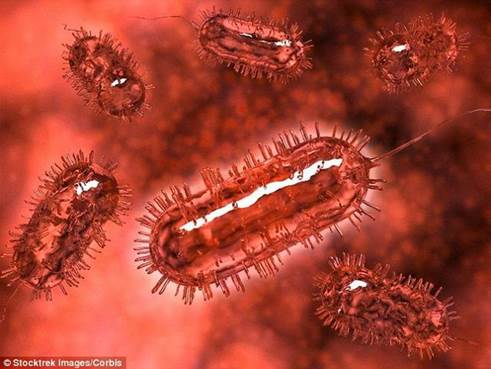人体内大肠杆菌可制造丙烷有望替代传统燃料
来源:《自然—通讯》
作者:Patrik R. Jones
时间:2014-09-24

科学家发现制造新型燃料的一种方法,使用人体肠道中的大肠杆菌可制造丙烷气体。
据国外媒体报道,目前,科学家最新一项研究表明,人体肠道中一种细菌产生的气体燃料可用于替代汽油和柴油。
研究人员发现使用人体内大肠杆菌,有助于形成丙烷气体,这是石油气的部分成份。未来这将有望研制一种新型燃料,使用太阳能转换成可用能量形式。
他们对大肠杆菌添加了3种酶,分别是:硫酯酶、CAR酶和乙醛-再形成氧合酶。这将促使它们提取丁酸——丙烷产物中一种臭味化合物。英国伦敦帝国理工学院生命科学系帕特里克-琼斯(Patrick Jones)博士说:“虽然这项研究处于较初期阶段,但我们概念验证提供了一种再生燃料产物的方法。”
虽然目前我们仅能制造少量燃料,但是这些燃料将为未来直接驱动发动机做好准备。这项研究开辟了未来可持续性生产再生燃料的可能性,可以替代化石燃料,例如:柴油、天然气和喷气燃料。
化石燃料是一种有限资源,伴随着全球人口增长,我们必须提出新的策略满足人类对能源的需求。使用大肠杆菌制造丙烷气体成本较低,并且具有经济可持续性发展。目前,这项最新研究报告发表在近期出版的《自然—通讯》杂志上。(腾讯科学 悠悠/编译)
An engineered pathway for the biosynthesis of renewable propane
Abstract The deployment of next-generation renewable biofuels can be enhanced by improving their compatibility with the current infrastructure for transportation, storage and utilization. Propane, the bulk component of liquid petroleum gas, is an appealing target as it already has a global market. In addition, it is a gas under standard conditions, but can easily be liquefied. This allows the fuel to immediately separate from the biocatalytic process after synthesis, yet does not preclude energy-dense storage as a liquid. Here we report, for the first time, a synthetic metabolic pathway for producing renewable propane. The pathway is based on a thioesterase specific for butyryl-acyl carrier protein (ACP), which allows native fatty acid biosynthesis of the Escherichia coli host to be redirected towards a synthetic alkane pathway. Propane biosynthesis is markedly stimulated by the introduction of an electron-donating module, optimizing the balance of O2 supply and removal of native aldehyde reductases.
原文链接:http://www.nature.com/ncomms/2014/140902/ncomms5731/full/ncomms5731.html




